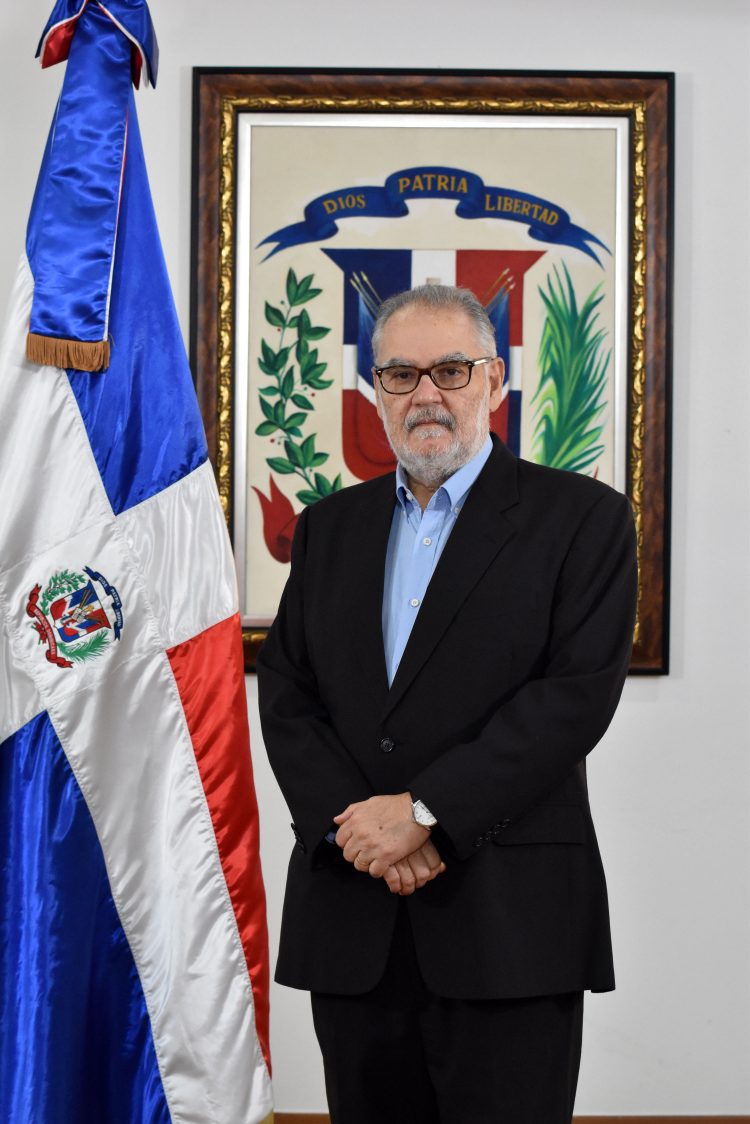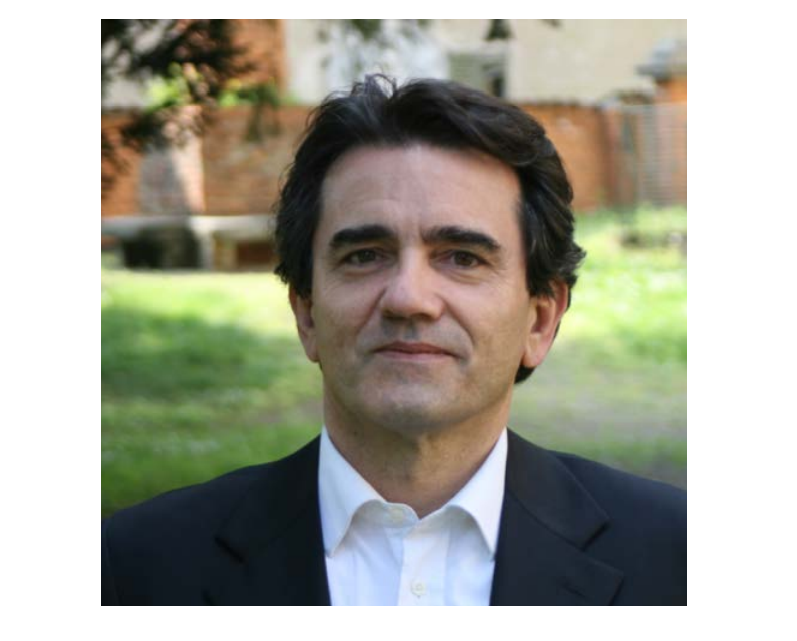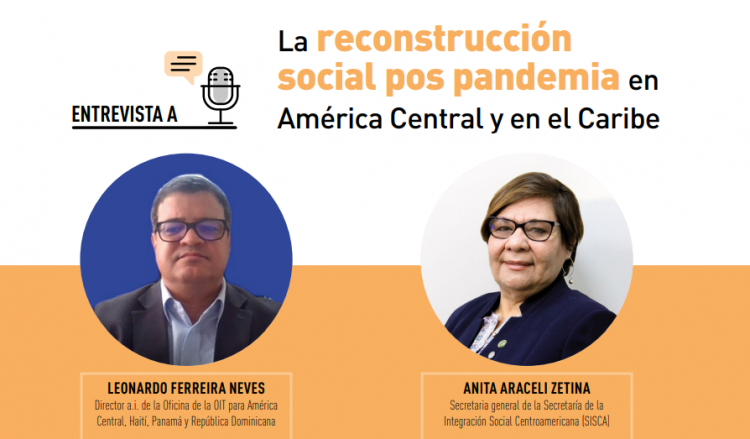Juan Manuel Santomé, director of EUROsociAL+

Has it ever occurred to you that if it weren’t for everyone, no one would be anyone?
Joaquín Salvador Lavado – Quino- (in memoriam)
2020 is drawing to a close. The year in which the impossible happened and a global pandemic affected us all, leaving hundreds of thousands of deaths, a global economic crisis of enormous proportions and an exponential increase in inequalities. And also, as if he decided to withdraw from the future of the world, we lost Joaquín Salvador Lavado, alias Quino, the creator of Mafalda and so many other endearing characters who for decades from the southern hemisphere illuminated the ideals of justice, freedom, solidarity, equality and peace for the rest of the world. To him and to these values we dedicate this issue of Recíprocamente, the magazine from EUROsociAL+, the EU’s flagship cooperation programme with Latin America and the Dominican Republic for the improvement of social cohesion. One objective, that of strengthening social cohesion, the pertinence of which is reinforced more than ever as a compass to ensure that the post-COVID-19 recovery and reconstruction process is resilient and inclusive, with no one left behind.
Social cohesion then, to respond to these difficult times. Because a wave of protests is spreading across Latin America (Chile, Guatemala, Peru, etc.), demanding an end to corruption, less inequality, access to decent employment, quality justice and social protection and to be citizens under the rule of law. And this movement is mainly headed by young people; young people interconnected through the social media, young people who were not born under dictatorships and who are therefore fearless, young people who know that it is they that (as Marina Sereni says in her article) will have to repay the enormous debt that is being contracted to defray the expenses of the post-COVID-19 contingency and recovery. Young people who are raising their voices and casting their votes to demand new social contracts…
The global response to the civilisational challenges that lie ahead are crystallised for the moment in the 2030 Agenda for Sustainable Development, certainly a common and inclusive agenda, which should operate as a framework to ensure the consistency of policies, also in the phase of post-pandemic reconstruction that lies ahead. Sustainable Development Goals (SDGs) that encompass the green and digital agenda and undoubtedly inspire hope, but to which the compass of social cohesion reacts by alerting us to the need for a just transition to a new energy and economic model, and moreover the need to reduce the already huge digital gaps as a matter of priority. A 2030 Agenda that recalls and also insists that there will be no sustainable development (or social peace) if inequalities are not reduced (SDG 10), if there is no commitment to gender equality (SDG 5), if there is no decisive choice for democratic governance with efficient and transparent institutions at the service of citizens (SDG 16), if there is no guaranteed universal baseline social protection, employment and work allowing young people to pursue projects while leading a decent life (SDG 8). However, the compass of social cohesion reminds us that development is a multidimensional process and that, therefore, there is a risk of fragmentation in the 2030 Agenda itself if its implementation is not addressed by linking some SDGs with others. The social cohesion compass is offered as a mechanism to identify SDG combinations with an accelerating effect on the 2030 Agenda. In the European Union, the response to the current crisis has been given concrete expression in the Next Generation EU Recovery Plan (well named in that it includes at least nominally the inter-generational vector referred to above), which involves the mobilisation of financial resources and the largest joint effort in the history of the European integration process. Social cohesion is a substantive part of the EU “acquis” and gestation process, as well as a necessary (although not sufficient) condition for its present and future feasibility. And therefore, the compass of social cohesion should logically guide the use of recovery funds (much of them in the form of loans that our children will have to repay).
So much for the WHAT. Social cohesion with a rights-based approach as a compass and a “vaccine” in the face of global challenges. Now comes the HOW. There are multiple challenges, some of a domestic nature, others of a regional and global nature. In his article, Daniel Innerarity pointed to “sustainable glocalisation” as a strategy, linking the local dimension with globalisation; he rightly indicated that global public goods require global institutions, global solutions, and also cooperation. Let us therefore focus on a very specific aspect of this last-named – international development cooperation, which is the area that concerns us. In particular, here, we would like to briefly share some reflections arising from the process of systematising the lessons learnt that is currently being carried out at EUROsociAL on the occasion of the programme’s 15th anniversary. Fifteen years in which the programme’s design has gradually evolved and new features have been introduced in its architecture and intervention toolbox, and in which it has continued to be a benchmark for EU cooperation with Latin America, inspiring new instruments that have appeared and other regional programmes. HOW then, will development cooperation help us face the challenges that lie ahead? Some of the lessons we have learnt ourselves give us some possible answers, namely: 1) The relevance and validity of a commitment to social cohesion as a strategic response to the multidimensional nature of inequalities and development; the wisdom, therefore, of maintaining social cohesion as an objective (and as a means), as an overarching umbrella that links the different dimensions: social, governance, gender equality, labour, environmental, productive, etc. 2) The relevance of multi-level cooperation, operating concurrently at the national, regional and bi-regional levels (EU/LAC), activating an honest dialogue which at the same time strengthens Euro-Latin American partnerships, networks and common practices (links), favouring regional integration and accompanying public policy reforms at the national level. 3) The importance of cooperation focused on the knowledge held by public servants, based on exchange between peers (links); knowledge that should logically guide and be coordinated with financial cooperation, opting for the principle of “policy first”. 4) Faced with the multitude of actors and instruments that directly affect the effectiveness of the ODA (harmonisation), it is committed to complementarity and partnership for development (links) in line with SDG 17. The “Team Europe” focus recently proposed by the European Commission, therefore, assumes full relevance for providing a harmonised and coherent EU response to the challenges faced by its partner countries. 5) Faced with the general trend towards fragmentation, sectoralisation, “departmentalisation and the difficulty in coordinating the provision of a large number of services” (as Lourdes Bermejo said in her article), it is important to opt decisively to strengthen inter-sectoral coordination mechanisms and open spaces for multi-dimensional dialogue (links), especially the commitment to multi-level, multi-actor, horizontal and partner-to-partner dialogue. 6) Flexibility and agility in the response, mobilising Latin American and European expertise at the highest level through triangular and bi-regional cooperation mechanisms, appropriately combining the range of tools available (study visits, public technical assistance, consultancies, forums, networking, etc.). 7) In the current context of COVID-19, and since it is a pandemic, logically more than ever the priority is to protect people, save lives and ensure the chain of care (“people first”).
Based on this way of doing things, EUROsociAL has managed to create a platform for the exchange of learning and knowledge made up of thousands of European and Latin American officials and it has been able to accompany hundreds of public policy reforms that generate social cohesion in the region, many of them high impact. Based on these premises and this way of doing things, EUROsociAL has built up a relational capital of trust robust enough to support the gestation of new social contracts in some countries (for example, the current ongoing accompaniment of the constitutional process in Chile and the provision of good European practices for social dialogue to the government of Costa Rica through the Economic and Social Councils). Based on these lessons and with this accumulated know-how, a comprehensive response to COVID-19 with a gender approach is being achieved, for example in Central America through the Social Recovery, Reconstruction and Resilience Plan at both regional and national levels. With this approach, we are facilitating the formation of broad regional consensuses, for example, the recently approved Inter-American Legal Framework regarding the Right of Access to Information (from the OAS) or the recent approval by the Plenary Assembly of the Ibero-American Judicial Summit of an international agreement on access to justice for vulnerable people based on the 100 Brasilia Rules. These are just some examples.
However, the narrative of the previous lessons and suggestions on the HOW from the EUROsociAL experience and the good results achieved does not capture or make visible an aspect that is possibly the really essential point (something which is usually invisible to the eyes as Saint-Exupéry said). What is, actually, essential has to do with the logic of care, with the care and respect with which EUROsociAL addresses the dialogue processes, with the attitude towards the transversality and closeness shown, it has to do with the availability and flexibility to give suitable responses to each country and institution, with the commitment of the teams, with the continuity over time that ends up generating the necessary trust and results in cooperation that is highly valued by the friendly countries of Latin America (to the entire EUROsociAL+ dream team, thank you!)
Weave, coordinate, complement, exchange, coordinate, discuss. Discuss. Discuss. Strengthen ties of belonging, spread trust, build social cohesion. Twenty-first century cooperation. In praise of links. Let’s not forget them in these times when we have to comply with social distancing.



